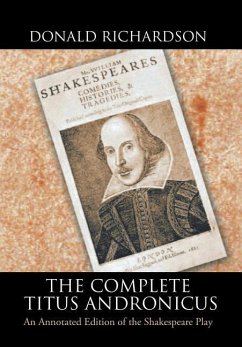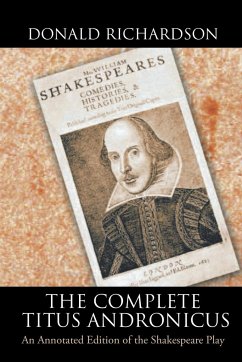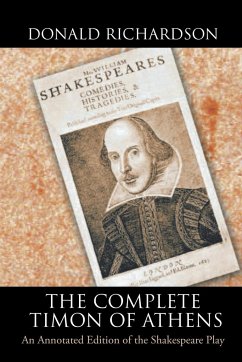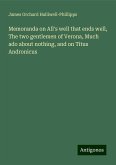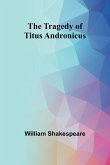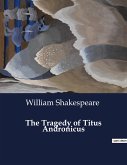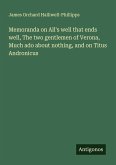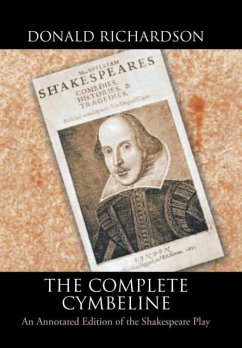Titus Andronicus, like Hamlet, is a revenge tragedy but one that "focuses on violence and horror[;] . . . its mood is one of revulsion" (Bevington, Introduction). Despite parallels between Aaron and Iago and between Titus and Lear, the play extends the genre of revenge tragedy and becomes one of unremitting violence and bloodshed. Although the revenge is supposed to offer some type of catharsis, it is challenging to accept the unmitigated and almost purposeless violence of the play. It is small wonder that scholars have denied Shakespeare as the author.
Bitte wählen Sie Ihr Anliegen aus.
Rechnungen
Retourenschein anfordern
Bestellstatus
Storno

